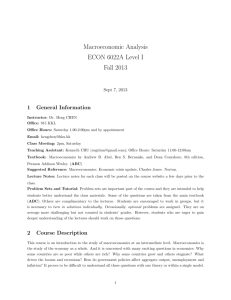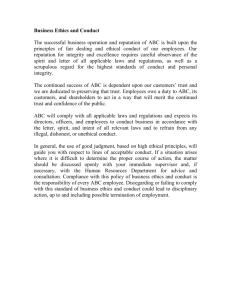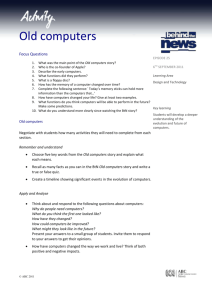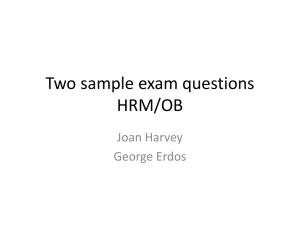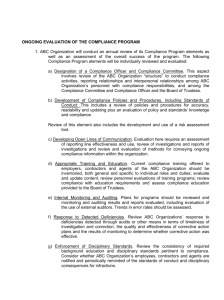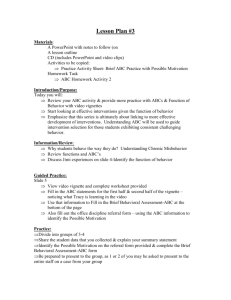Macroeconomic Theory ECON 2102 Spring 2011
advertisement
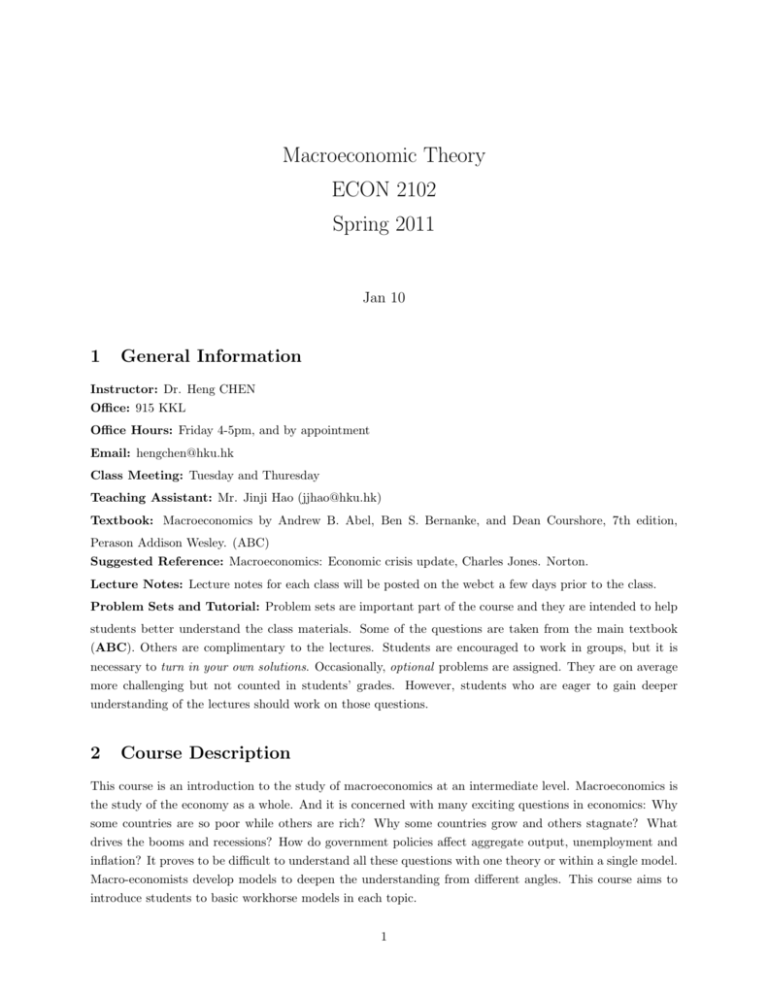
Macroeconomic Theory ECON 2102 Spring 2011 Jan 10 1 General Information Instructor: Dr. Heng CHEN Office: 915 KKL Office Hours: Friday 4-5pm, and by appointment Email: hengchen@hku.hk Class Meeting: Tuesday and Thuresday Teaching Assistant: Mr. Jinji Hao (jjhao@hku.hk) Textbook: Macroeconomics by Andrew B. Abel, Ben S. Bernanke, and Dean Courshore, 7th edition, Perason Addison Wesley. (ABC) Suggested Reference: Macroeconomics: Economic crisis update, Charles Jones. Norton. Lecture Notes: Lecture notes for each class will be posted on the webct a few days prior to the class. Problem Sets and Tutorial: Problem sets are important part of the course and they are intended to help students better understand the class materials. Some of the questions are taken from the main textbook (ABC). Others are complimentary to the lectures. Students are encouraged to work in groups, but it is necessary to turn in your own solutions. Occasionally, optional problems are assigned. They are on average more challenging but not counted in students’ grades. However, students who are eager to gain deeper understanding of the lectures should work on those questions. 2 Course Description This course is an introduction to the study of macroeconomics at an intermediate level. Macroeconomics is the study of the economy as a whole. And it is concerned with many exciting questions in economics: Why some countries are so poor while others are rich? Why some countries grow and others stagnate? What drives the booms and recessions? How do government policies affect aggregate output, unemployment and inflation? It proves to be difficult to understand all these questions with one theory or within a single model. Macro-economists develop models to deepen the understanding from different angles. This course aims to introduce students to basic workhorse models in each topic. 1 4 COURSE INFORMATION The course covers three broad topics in modern macroeconomics: ∙ Economics growth ∙ Business cycles ∙ Money and prices If time allows, we will also cover a few selected topics, for example, international macroeconomics, macroeconomics with inter-temporal approach and optimal polices, etc. 3 Course Objectives and Learning Outcomes 3.1 Course objectives: The course aims to ∙ equip students with modern macroeconomics knowledge; ∙ and help students develop skills and intuition for the analysis of the economy from the macroeconomics perspective. 3.2 Learning outcomes: By the end of the course, students should be able to ∙ process and analyse macroeconomic data; ∙ analyse real world macroeconomic issues with macro models; ∙ and provide critical analysis of macroeconomic policies. 4 Course Information 4.1 Prerequisites ∙ Prerequisites: Students should have taken Introduction to Economics I and II (Principle Micro and Macro). ∙ Students are expected to be comfortable with multi-variable calculus, and basic optimization with constraints. Students without any calculus background would find the course very challenging. 4.2 Assessment: ∙ Bi-weekly Problem Set, 20% ∙ Mid-term exam, 20% ∙ Final exam, 60% 2 5 4.3 CLASS CONDUCT Topics and Schedule (Preliminary) ∙ Week 1 (Jan 11, 13): Introduction and national income accounting Lecture note 1 and 2; ABC 2; ∙ Week 2 (Jan 18, 20): Production function and labor market Lecture note 3; ABC 3; ∙ Week 3 (Jan 25, 27): Saving, investment and goods market Lecture note 4; ABC 4; ∙ Week 4(Feb 1, 10, 15): Economic growth Lecture note 5; ABC 6; ∙ Week 5 (Feb 17, 22, 24): Money and prices Lecture note 6; ABC 7; ∙ Week 6 (Mar 8): In-class mid-term exam ∙ Week 7 (Mar 10): Business cycle facts Lecture note 7; ABC 8; ∙ Week 8 (Mar 15, 17): IS-LM model/AD-AS model Lecture note 8; ABC 9; ∙ Week 9 (Mar 22, 24): IS-LM model/AD-AS model (cont’) Lecture note 8; ABC 9; ∙ Week 10 (Mar 29, 31): Classical business cycle analysis Lecture note 9; ABC 10; ∙ Week 11 (Apr 7, 12): Keynesianism analysis Lecture note 10; ABC 11; ∙ Week 12 (Apr 14, 19, 21): Selected topics Lecture note 11; 5 Class Conduct ∙ Cheating in exams is not allowed. Students found cheating will be punished. ∙ Please be on time when coming to class. ∙ Please turn off mobile phones and any devices that would cause disturbance to others. 3

